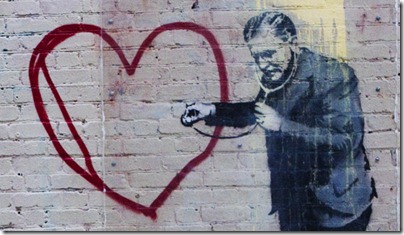Being under-employed can rip the motivation, engagement, and desire to innovate right out of you.
What is under-employment?
Under-employment is being caged or confined to do work that does not allow you to use your full capability ( Current-Actual-Capability ) within the tasks assigned. It is generally manifested through a person having “bigger ideas” and applying the work, and seeing connections for improvement being told, “That is not your job. Stay in your area and do what you are told.”
This can be tough to navigate because the under-employment and under-delegation of tasks is a result of poor organizational design and a manager who is not “big enough” for the role OR a manager – subordinate relationship where they are both too close in capability (both fill the same area and neither can add value to the other).
I have experienced aggressive under-employment, which caused me to start this business and flourish. I can remember the crushing blows to my ego and desire to continue to do quality work when I heard my manager and my managers manager say to me, “Mike, that is not your job, keep leading the training programs, and I go after clients and new ideas. We hired you to do what we want…not what you think you should do.” and “Mike I did not hire you for new ideas and to learn, I hired you to do the programs…I don’t pay you to develop new programs and learn. I pay you to do the work.”
If you have heard any variation of the above, I am sure you know the death blow this causes, and you know that recovery and desire to continue work is not gonna happen.
There is a needed distinction between the person and what they are capable of doing versus their role in the organization and the level-or-work required for that role. Those two are separate.
For example, you may have a van driver for a non-profit whose role – level-of-work is measured monthly and requires weekly planning and scheduling. BUT the individual in that role may have the individual capability to improve the drive time, decrease costs of fuel-based upon route logistics costs, and develop plans connecting several sites to increase returns and reduce expense. This person is ‘supposed to do’ vs. what they can do and offer differently.
The level-of-work in a role results not from the activity but from the time-span of the goal of the activity. The level of work responsibility derives from the purposes of human activity, from the nature of the output to be achieved. (Jaques 1978)
It can never be assumed that just because two people have the same role within the company, they have the same capability and level-or-work. As humans, we view problems and solutions differently. We each need to be able to fill our capacity (bucket) to our fullest and not be constricted by systems-that-drive negative behaviors.
Using our van driver above, the person who sees a connection that is longer in time-span and has ideas about improving the work will feel under-employed and frustrated if he is told and delegated with driving the given route and getting people on-time to appointments. However, he would feel fully-employed if the goal of his work was to develop logistics and routes that can decrease mileage and costs on vehicles, plus establish ways to reduce repeated drive routes and overtime of the drivers, each task being a longer time-span more systemic thinking process.
The frustrating things about under-employment come from a person, while doing their work, to be confined to tasks that are shorter in time-span and responsibility than they can complete. As the person completes these lesser tasks, their capability for higher-level work expresses itself: possible new methods; easier ways of doing things; better decisions and judgment; possibility of exploring a new process or product; etc.… BUT they are not allowed to express and exercise these ideas. His manager is not interested in hearing the ideas, just getting the assigned tasks done on time. With this happening, at best, the employee may develop some way to still use their capability in full…but with a manager and the person feeling caged, they are eventually destroyed by the eight-plus hours of work every day.
“In short, under-employment is frustrating because it requires an individual to swallow the inexorable expression of his level of work-capacity, to conceal it, to keep it to himself, to throw it away. The measure of frustration is the discrepancy between time-span of the person’s work-capacity and the time-span of the objectives of his activity…Being forced into under-employment through lack of availability of adequate levels of work in a bureaucratic sector has effects akin to imprisonment.” (Jaques 1978)

Being under-employed rips the motivation, engagement and desire to innovate right out of you.
Referenced:
- ‘Levels of Abstraction in Logic and Human Interactions’ Elliott Jaques. 1978; Pages 299, 300.

